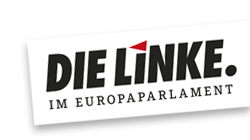Supporters of a far-reaching trade agreement (TTIP) between the EU and the US won a majority in today's vote in the European Parliament's trade committee on a resolution on Parliament's demands on the ongoing negotiations.
Helmut Scholz, shadow rapporteur for GUE/NGL parliamentary group, criticised this outcome: "Compromises agreed between rapporteur Lange (S&D group) and the conservative and liberal groups are deliberately ignoring the deep concerns raised during the broad public debate in many EU member states regarding the creation of a common transatlantic market."
He added: "The vast majority of people outside the Committee room reject investor-state-dispute-settlement (ISDS), but those MEPs in favour think they know better. In my opinion, it is arrogant that the amendments from the opinions of five other committees, including the legal affairs committee and the constitutional affairs committee, who asked to oppose ISDS, have been completely ignored, just like the 1.9 million EU citizens who already signed a petition against ISDS."
The trade committee also rejected demands to prevent the installation of a "regulatory cooperation council" in TTIP.
Dutch MEP Anne-Marie Mineur commented: "It is outrageous to see how some political groups are willing to give up parliamentary controls over future EU and member state legislation. With their support for mutual recognition of the different standards in the EU and the US and for a screening procedure for any new legislation regarding the impact on trade and investment, those MEPs are willing to give up parliamentary democracy for their almost religious belief in the promised benefits of free trade."
Italian MEP Eleonora Forenza explained: "TTIP will not create jobs; it is much more likely to destroy more than one million jobs in the EU due to increased competition. This is the result of several impact assessment studies and was confirmed by the chief economist in DG Trade. However, all our proposals to at least mention these figures were just voted down."
Other issues voted down were the demand for a "positive list" approach to safeguard public services and other sensitive services from liberalisation commitments, as demanded by the Committee of the Regions and several committees of the European Parliament.
"We will re-table crucial amendments for the plenary vote on June 10, and we sincerely hope that the majority in the house will vote differently from the majority in the trade committee." concluded Helmut Scholz. "MEPs should listen to the people in their constituencies."









